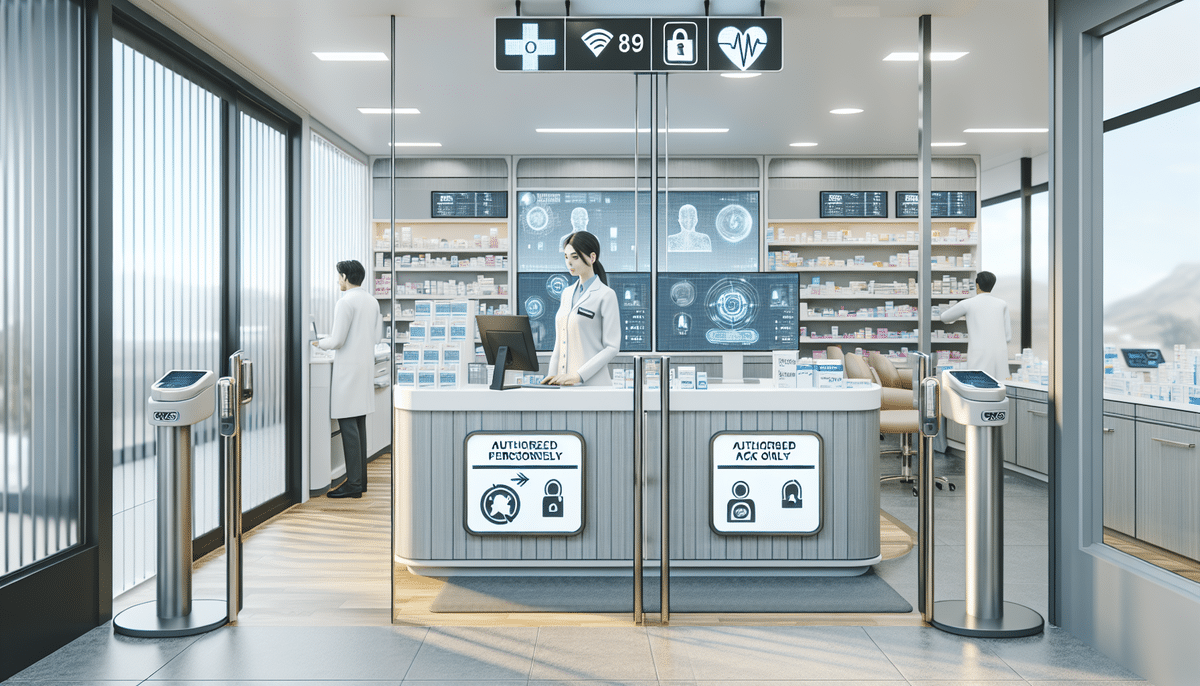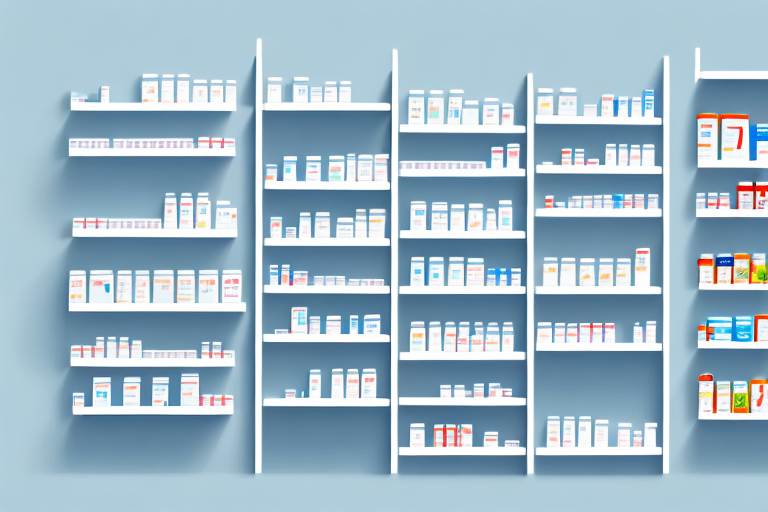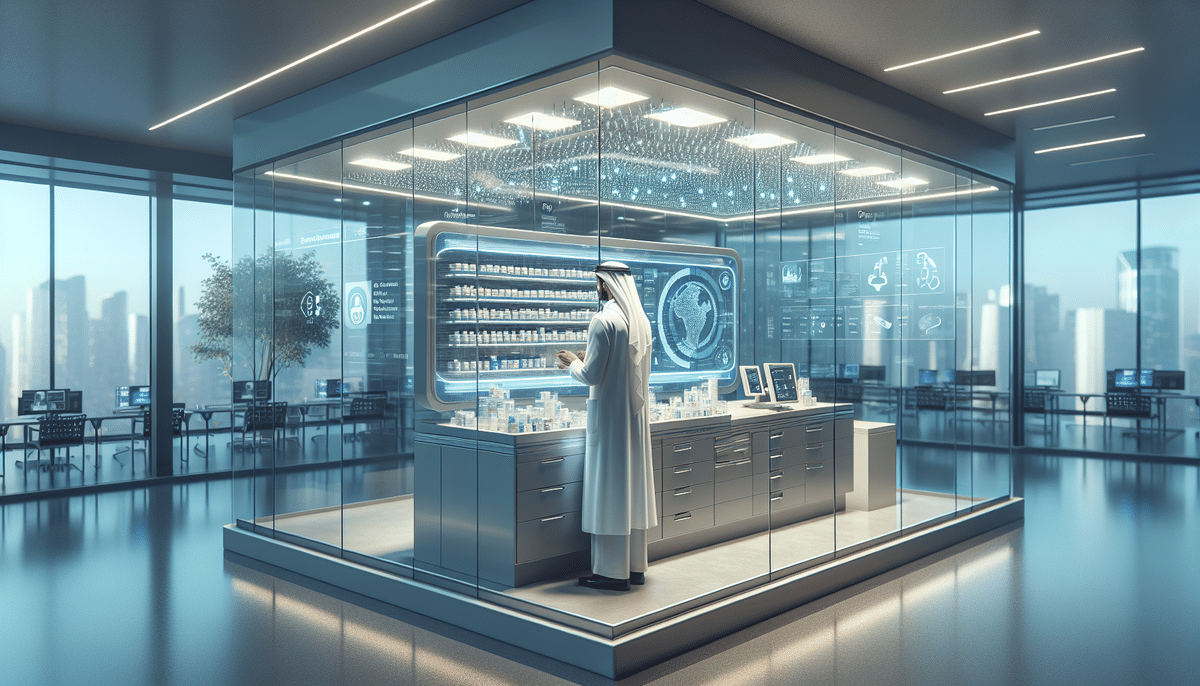Ensuring Patient Privacy in Closed-Door Pharmacies
Patient privacy is a critical concern in the healthcare industry. Closed-door pharmacies address this by operating in secure, controlled environments accessible only to authorized personnel. According to the U.S. Department of Health & Human Services, maintaining patient confidentiality is essential for trust and compliance with regulations like HIPAA.
These pharmacies are strategically located away from public areas and other medical facilities, reducing the risk of unauthorized access to sensitive information. Additionally, staff undergo rigorous training to handle confidential medical data responsibly.
Advanced Privacy Technologies
Closed-door pharmacies employ advanced technologies such as electronic health records (EHRs) with strict access controls and audit trails. These systems ensure that only authorized individuals can access patient information, and all access is monitored and recorded.
Secure communication channels are also utilized to transmit sensitive information between healthcare providers and patients, further safeguarding privacy throughout the medication dispensing process.
Advantages of a Controlled Environment
Closed-door pharmacies offer a multitude of benefits by maintaining a controlled environment for medication dispensing. This setting ensures the accuracy and safety of medications, contributing to better patient outcomes.
Accurate Medication Dispensing
State-of-the-art technologies like automated dispensing cabinets and barcode scanners are standard in closed-door pharmacies. These tools minimize human error, ensuring patients receive the correct medication and dosage every time.
Optimal Storage Conditions
Medications are stored under ideal temperature and humidity conditions, preserving their efficacy and reducing the risk of spoilage or degradation. Proper storage is particularly crucial for vaccines and biologics, which are sensitive to environmental changes.
Efficient Inventory Management
Advanced inventory systems enable precise tracking of medication usage and expiration dates. This reduces waste, prevents shortages, and ensures that medications are available when needed. Effective inventory management also facilitates quick responses to recalls or supply chain disruptions.
Safeguarding Against Medication Errors
Medication errors can have severe consequences for patients. Closed-door pharmacies implement multiple safeguards to minimize these risks.
Specialized Training for Personnel
Pharmacists and technicians in closed-door pharmacies receive specialized training focused on medication safety and error prevention. This expertise ensures meticulous attention to detail during the dispensing process.
Utilization of Electronic Health Records
EHRs provide comprehensive patient medication histories, including allergies and past adverse reactions. Access to this information allows pharmacists to make informed decisions, reducing the likelihood of harmful interactions or incorrect dosages.
Promoting Health and Safety
Closed-door pharmacies play a significant role in enhancing overall public health and safety.
Reducing Transmission of Infectious Diseases
By isolating the pharmacy environment, these establishments minimize the risk of spreading infectious diseases. Patients who are contagious or immunocompromised can safely obtain medications without exposing others.
Personalized Care for Chronic Conditions
Specialized staff in closed-door pharmacies are adept at managing complex medication regimens for patients with chronic illnesses. This personalized approach ensures proper medication adherence and early identification of potential side effects or interactions.
Enhancing the Patient Experience
Closed-door pharmacies are designed to provide a superior patient experience through personalized and efficient services.
Personalized Services
With a smaller, more specialized staff, closed-door pharmacies can tailor services to meet individual patient needs. This includes customized medication plans and one-on-one consultations to address specific health concerns.
Efficient Operations
Advanced technologies streamline pharmacy operations, reducing wait times and ensuring prompt medication delivery. Features like automatic refill reminders and online prescription management enhance convenience for patients.
Role of Technology in Closed-Door Pharmacies
Technology is a cornerstone of closed-door pharmacy operations, enabling accuracy, security, and enhanced patient care.
Automated Dispensing Systems
Automated systems ensure precise medication dispensing, reducing the potential for human error. Barcode scanners verify each medication against the patient’s prescription, ensuring accuracy.
Data Analytics for Improved Outcomes
Closed-door pharmacies leverage data analytics to monitor medication adherence and patient outcomes. This data-driven approach allows for proactive interventions, improving overall health outcomes and optimizing treatment plans.
Enhanced Security Measures
Advanced security systems, including biometric authentication and surveillance cameras, protect medications and patient information from theft and unauthorized access.
Impact on the Healthcare Industry
Closed-door pharmacies are revolutionizing the healthcare industry by setting new standards for medication dispensing and patient care.
Improved Patient Trust and Compliance
Enhanced privacy and personalized services foster greater trust among patients, encouraging adherence to prescribed treatment plans and improving health outcomes.
Reducing Healthcare Costs
By minimizing medication errors and optimizing inventory management, closed-door pharmacies help reduce overall healthcare costs. Efficient operations and waste reduction contribute to financial sustainability for healthcare providers.
Supporting Sustainable Practices
Advanced inventory systems prevent medication waste, aligning with the healthcare industry’s goals for sustainability and environmental responsibility. Proper disposal and minimal wastage contribute to a reduction in the environmental impact of pharmaceuticals.
In conclusion, closed-door pharmacies offer a secure, efficient, and patient-centered approach to medication management. By prioritizing privacy, leveraging advanced technologies, and fostering personalized care, these pharmacies are becoming an integral part of the modern healthcare landscape. As the industry continues to evolve, the adoption of closed-door pharmacy models is likely to expand, further enhancing the quality and safety of patient care.




















